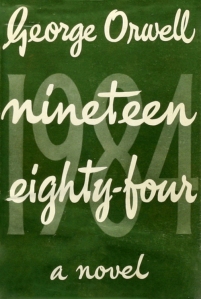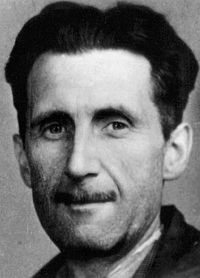October 26, 2012
In the current election cycle of 2012, we have an excellent example of how both of the dominant political parties, Democrat and Republican, continue to propagate the lies and misinformation that allow them to maintain total control of the political system. Both candidates for election to president, Barack Obama and Mitt Romney, are not only willing participants but active representatives of this process.
The two parties are raising at least a billion dollars directly and much more indirectly from Pacs and non profits spending with the private sectors. They are simply each promoting and marketing their propaganda and pretending to be concerned about the welfare of the people. And it tends to work as we know from past experience, but never quite to this extent because the corporate forces are now fully involved without shame, conscience and without full disclosure. Yet, the Supreme Court in its Citizen's United decision ruled that money was free speech and corporations should be treated as persons? And yet, in this context, it should be mentioned from past history, that lies which are repeated often will often be regarded as "Truth" from constant brainwashing as the Third Reich practiced with Hitler's propaganda minister, Goebels, using complete control of the media.
Using a weapon of distraction in the political sector is not unlike the strategy that bank robbers used in old western movies that we might have watched. If you want to rob a bank, then start a fire on the edge of town to get people's attention, then rob the bank in the middle of town. In our current political situation, they create a ruckus on something of minor importance to most people, attract the corporate media to dwell on it, and then proceed to enable their corporate friends to continue to rob the banks. And amazingly, many of us are drawn to these distractions and forget about the really important issues. We tend to be "distracted" either to be "entertained" or to the "disgust" of it all. Both lead to denial or total neglect of our civic responsibilities and protecting our democracy, such as it even now exists.
In the U.S. one way this works is to sharply divide "social" issues from economic issues and issues of imperialism such as who we should declare "war" on next. Of course, now we don't declare it as representing war because we have drones, or flying robots, to do our dirty work in foreign countries. We've simply replaced people with technology. After all, we've learned to adapt to video games haven't we? We can do this from a remote station with absolute "denial" of responsibility and no conscience or human characteristics.
Now what is the source of this rot that has infested our society? There are several but I would maintain they are rooted in several basic ideologies or values, and some of these are learned and even adopted from some popular literature of the past, including people like Ayn Rand and the lessons that George Orwell tried to teach in their novels. In this essay, I will attempt to show the connections to George Orwell's novel "1984"; I will discuss Ayn Rand's influence in a subsequent paper.
"George Orwell was the pen name of Eric Arthur Blair, born in 1903 in colonial India. He attended border school in England, and it was there that he first became aware of the hurtful class prejudice that plagued British society, developing an early sensitivity to the uses and abuses of power. Upon graduating from Eton in 1921, Orwell signed on with the Burmese Indian Imperial Police, about which he commented. "In order to hate imperialism, you have got to be part of it." His time in Burma affected him profoundly, and he quite without explanation five years later, announcing that he was to become a writer." (From the front page introduction to the book, "1984" Centennial Edition , used as an important resource.)
In George Orwell's most famous novel, "1984", he describes a totalitarian nation which he called Oceana. From Wikipedia:
"Nineteen Eighty-Four is a novel by George Orwell published in 1949. It is a dystopian and satirical novel set in Oceania, where society is tyrannized by The Party and its totalitarian ideology. The Oceanian province of Airstrip One is a world of perpetual war, omnipresent government surveillance, and public mind control, dictated by a political system euphemistically named English Socialism (Ingsoc) under the control of a privileged Inner Party elite that persecutes all individualism and independent thinking as thoughtcrimes. Their tyranny is headed by Big Brother, the quasi-divine Party leader who enjoys an intense cult of personality, but who may not even exist. Big Brother and the Party justify their rule in the name of a supposed greater good. The protagonist of the novel, Winston Smith, is a member of the Outer Party who works for the Ministry of Truth (Minitrue), which is responsible for propaganda and historical revisionism. His job is to re-write past newspaper articles so that the historical record always supports the current party line. Smith is a diligent and skillful worker, but he secretly hates the Party and dreams of rebellion against Big Brother.
"As literary political fiction and as dystopian science-fiction, Nineteen Eighty-Four is a classic novel in content, plot, and style. Many of its terms and concepts, such as Big Brother, doublethink, thoughtcrime, Newspeak, and memory hole, have entered everyday use since its publication in 1949. Moreover, Nineteen Eighty-Four popularised the adjective Orwellian, which describes official deception, secret surveillance, and manipulation of the past by a totalitarian or authoritarian state. In 2005 the novel was chosen by TIME magazine as one of the 100 best English-language novels from 1923 to 2005. It was awarded a place on both lists of Modern Library 100 Best Novels, reaching number 13 on the editor's list, and 6 on the reader's list. In 2003, the novel was listed at number 8 on the BBC"s survey The Big Read.
The structure, social and political, of Oceana is as follow: (Just to remind people here, does this structure below remind everyone of the Occupy Wall Street movement and the 99% issues?)
- (I) the upper-class Inner Party, the elite ruling minority (less than 2% of the population)
- (II) the middle-class Outer Party, and (about 13% of the population)
- (III) the lower-class Proles (from proletariat), who make up 85% of the population and represent the uneducated working class.
As the government, the Party, controls the population with four ministries:








